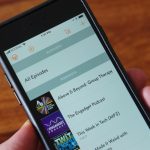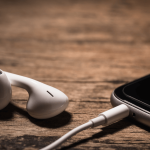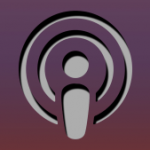Finding Podcasts May Get Easier With This Public Radio Vet’s New App
With all the excitement and venture capital money buzzing around podcasts lately, you would think it would be easier to find something to listen to. But despite a flood of new shows and flurry of apps, it remains surprisingly difficult to just hit play, hear something you want to hear, and be on your way.
RadioPublic is the latest attempt to take a crack at this discovery problem. The app, launched by a public benefit corporation started by PRX cofounder Jake Shapiro in May, aims to smooth out some of the friction in finding new episodes to stream.
“There are 10 million new listeners expected this coming year,” says Shapiro of the increasingly popular medium. “They land in a very confusing array of apps that are designed for existing superusers. Our mission is to help listeners discover and reward creators.”
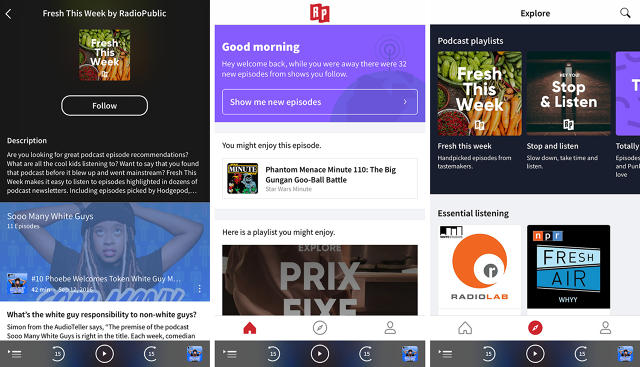
For RadioPublic, the starting point is a focus on curation. Layered atop the standard library of publicly available podcasts found on most apps is a collection of playlists built both by RadioPublic’s team and outside tastemakers. Song Exploder creator and host Hrishikesh Hirway, for example, built a playlist of episodes from various podcasts that helped inspire him to create his own. Another playlist curated by HubSpot features productivity-themed podcast episodes, while RadioPublic’s team put together shows about sex and a list of of recent shows entitled “Fresh This Week.”
There’s an algorithmic element to RadioPublic’s suggestions as well. The more you subscribe and listen to podcasts and playlists, the better the app understands not only what you might be interested in hearing, but when you may want to hear it.
“We’re developing a contextual and situational awareness about what we might want to present to you at a given moment in time,” says cofounder Matt MacDonald. ” You may subscribe to 10 or 15 shows, but which episodes are you interested in listening to in this particular moment?”
The app’s first step toward understanding the listeners’ context is evident when you first launch RadioPublic: It greets users according to the time of the day (“Good morning!”) and offers up a list of all the new episodes from the podcasts they follow. But down the road, the team hints at learning from other signals: Are they listening on an Amazon Echo at home? Are they in the car? Details like this can help the app’s personalization get smarter, allowing it to surface particular shows at just the right time.
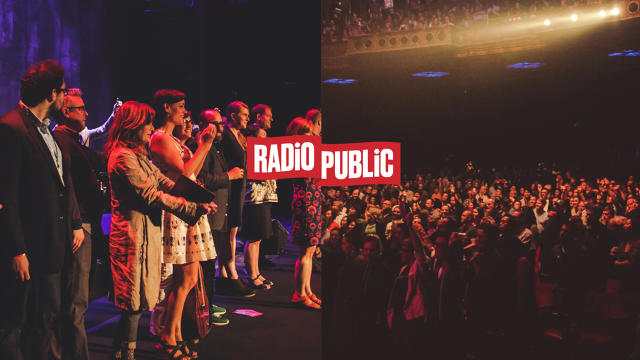
Adding another layer to its human-powered curation is a truly unique feature called the Podcast Librarian. Tapping this button brings up a web form asking about the listener’s taste in movies, music, books, and of course, podcasts. Using this data, a living, breathing person sends back a list of hand-selected podcast episodes to check out. The process feels a bit duct-taped together—the web form launches in the browser instead natively inside the app, and the requests go into a Zendesk queue like a customer support inquiry—but it’s a novel idea that offers an extra human touch when algorithms seems to dominate our consumption of news and entertainment media online. The biggest challenge might be providing that service on a mass scale, presuming RadioPublic takes off as intended.
RadioPublic’s mission of solving the podcast discovery problem and offering new incentives for producers to keep making quality audio content (presumably including money, at some point) is a bold one. But if there was ever a moment to try, it would be right now, as podcasting is entering a long-delayed renaissance period.
The launch of RadioPublic’s app is “the first incremental step toward that task,” as Shapiro puts it. Indeed, some of the most interesting things about RadioPublic’s app are the groundwork it lays for future innovation. They’re taking full advantage of the fact that podcasting is built on the RSS protocol, for instance, by offering producers ways to add new data points and even curation decisions at the feed level. If a podcaster wants to promote a given episode or add extra meta around a given episode, RadioPublic wants to enable that. And since RSS is really just an XML-based standard with some flexibility built into its data fields, there’s no reason they can’t tinker with it a bit.
Another possibility Shapiro and his team talk about is allowing in-feed annotations for podcast episodes. For example, if a host references a website or a famous painting, there’s no reason why they couldn’t include that supplementary content right inside the app.
Then there’s the matter of making money. Podcasters have traditionally relied on advertising and sponsorships to monetize their hard work. That’s not about to change with RadioPublic, but they’re beginning to think beyond that model using personalization. Somebody who binges on RadioLab, for example, might one day see an ad offering discounted tickets to an upcoming live taping.
Of course, the first step is getting people to download and use the app in large numbers. With so many alternatives (not to mention all the other distractions of digital life), that’s no small feat. But with an extensive background not just in public radio, but also podcasting—PRX launched a podcasting app called Pubcatcher way back in 2005—the team behind RadioPublic seems up to the challenge.
RELATED: How These Podcasting Pioneers Plan To Reinvent Radio
Fast Company , Read Full Story
(19)




